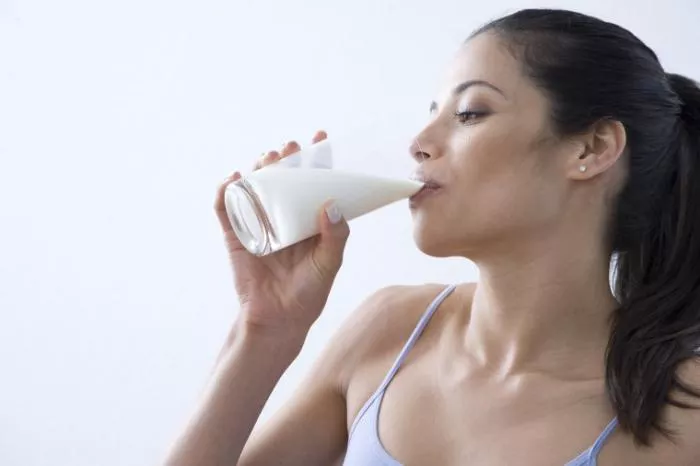Breastfeeding is a crucial phase for both the mother and the baby. Many mothers wonder about the importance of their diet during this time, particularly whether drinking milk is necessary. There are many myths and opinions about this topic, so understanding the facts is essential.
In this article, we will explore whether drinking milk while breastfeeding is necessary, its benefits, and alternative sources of essential nutrients.
Is Drinking Milk Necessary?
The short answer is no, drinking milk is not strictly necessary while breastfeeding. Breastfeeding mothers do not need to consume milk to produce breast milk. The human body is designed to produce nutritious milk for the baby regardless of whether the mother drinks milk.
However, milk is a good source of certain nutrients, particularly calcium and vitamin D. These nutrients are essential for the baby’s growth and the mother’s health. If a mother does not drink milk, she can still get these nutrients from other foods.
Benefits of Drinking Milk While Breastfeeding
Although not required, drinking milk offers several benefits:
1. Rich Source of Calcium
Calcium is vital for maintaining strong bones and teeth. During breastfeeding, a mother’s calcium stores are used to produce breast milk. If the mother does not consume enough calcium, her body will take calcium from her bones, which could lead to bone loss over time.
Milk and dairy products are excellent sources of calcium. One cup of milk contains about 300 milligrams of calcium. The recommended daily intake for breastfeeding mothers is around 1,000 milligrams. Drinking milk can help meet this requirement easily.
2. Provides Vitamin D
Vitamin D helps the body absorb calcium and supports bone health. It is also crucial for the baby’s bone development. Many people do not get enough vitamin D, especially those who live in areas with little sunlight.
Milk is often fortified with vitamin D, making it a good source of this nutrient. Breastfeeding mothers who do not drink milk should ensure they get vitamin D from other sources, such as fatty fish, egg yolks, or supplements.
3. Good Source of Protein
Protein is essential for the growth and repair of tissues. Breastfeeding mothers need extra protein to support milk production. Milk provides high-quality protein, which contains all the essential amino acids.
4. Hydration
Staying hydrated is important for breastfeeding mothers. Milk is about 90% water, so drinking it can help maintain hydration. While water is the best source of hydration, milk can be a nutritious option.
Alternatives to Drinking Milk
Some mothers may not want to drink milk due to lactose intolerance, allergies, or personal preference. Fortunately, there are many alternative ways to get the essential nutrients found in milk:
1. Calcium-Rich Foods
Leafy Greens: Spinach, kale, and broccoli are excellent sources of calcium.
Nuts and Seeds: Almonds, chia seeds, and sesame seeds provide calcium and healthy fats.
Fish with Bones: Sardines and salmon with bones are rich in calcium.
Fortified Foods: Many plant-based milk alternatives, such as almond milk, soy milk, and oat milk, are fortified with calcium.
2. Vitamin D Sources
Sunlight: The body produces vitamin D when the skin is exposed to sunlight. Spending 10-15 minutes in the sun each day can help.
Fatty Fish: Salmon, tuna, and mackerel are rich in vitamin D.
Egg Yolks: Eggs are another good source of vitamin D.
Supplements: If dietary intake is insufficient, vitamin D supplements can help.
3. Protein Alternatives
Legumes: Beans, lentils, and chickpeas are good sources of plant-based protein.
Nuts and Seeds: These provide protein, healthy fats, and other nutrients.
Lean Meats: Chicken, turkey, and lean beef offer high-quality protein.
Plant-Based Proteins: Tofu and tempeh are excellent options for vegetarians.
Tips for a Balanced Diet While Breastfeeding
Maintaining a balanced diet is crucial for both the mother and baby. Here are some tips:
Eat a Variety of Foods: Include fruits, vegetables, whole grains, lean proteins, and healthy fats.
Stay Hydrated: Drink plenty of water throughout the day.
Get Enough Calcium: Aim for 1,000 milligrams of calcium daily. Choose dairy or non-dairy sources.
Ensure Vitamin D Intake: Spend time in the sun and eat vitamin D-rich foods. Consider a supplement if needed.
Listen to Your Body: Eat when you are hungry and avoid strict diets. Breastfeeding requires extra calories.
Conclusion
Drinking milk while breastfeeding is not strictly necessary, but it can provide important nutrients like calcium, vitamin D, and protein. Mothers who do not drink milk can get these nutrients from other foods or supplements.
Maintaining a balanced diet ensures that both the mother and baby receive the necessary nutrients for healthy growth and development. Every mother’s dietary needs are different, so it’s important to find what works best for you. If you have specific concerns, consulting a healthcare provider or a nutritionist can help you make informed decisions.
Related Topics:


